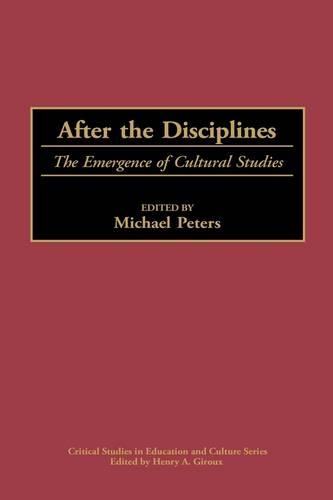
After the Disciplines: The Emergence of Cultural Studies
(Paperback)
Publishing Details
After the Disciplines: The Emergence of Cultural Studies
By (Author) Michael Peters
Bloomsbury Publishing PLC
Praeger Publishers Inc
30th August 1999
United States
Classifications
Tertiary Education
Non Fiction
Higher education, tertiary education
378.199
Physical Properties
Paperback
312
Description
Since the late 1960s, both internationally and locally, we have witnessed the growth of subject areas outside the traditional liberal arts curriculum and disciplinary structure of the university curriculum: black studies (or indigenous studies), feminist or women's studies, critical legal studies, film and media studies, gay studies and cultural studies are some of the most popular. The principles underlying a global neo-liberalism and managerialism were responsible for restructuring universities during the 1980s. Some thought that such developments imperiled the humanities, while others believed that the context of globalization and the development of new communications technologies offered new hope for both interdisciplinary work and the emergence of a critical approach. The book asks the following broad questions: what are the underlying historical, epistemological and political reasons for the emergence of cultural studies What do these developments imply for the traditional liberal arts curriculum and the traditional discipline-based university To what extent does the emergence of cultural studies displace or dislocate traditional disciplines What forms of resistance has cultural studies encountered, and why To what extent does the emergence of cultural studies reflect a changing mission of the university and changing relations between the university and the wider society What is the future of cultural studies
Author Bio
MICHAEL PETERS is Professor of Education, Auckland University, New Zealand.
